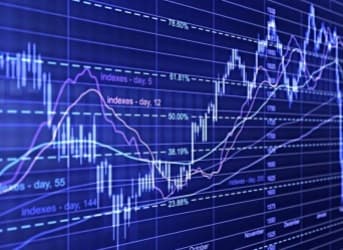The International Monetary Fund offered a silver lining to the otherwise scathing barrage of reports out last week critical of the U.S. experiment in Iraq. The IMF said oil production for 2013 should increase roughly 10 percent from last year to 3.3 million bpd. Meanwhile, economic growth for the year should stay strong at 9 percent for the year. The 10-year U.S. military engagement accomplished little in terms of grand political achievements or internal stability. But if economic progress is any benchmark, then Iraq could be on the right path, relatively speaking, despite medium-term challenges.
The United States declared war on Iraq 10 years ago last Wednesday. Former U.N. weapons inspector Hans Blix said last week that the policymakers involved in the decision to go to war "certainly did not exercise critical thinking." For the Brookings Institution, the cost of "an unwarranted" war was 100,000 dead Iraqis, 4.5 million refugees and the near-elimination of some religious minorities. Martin Kobler, U.N. special envoy to Iraq, said there are very challenging times ahead as the country struggles to cope with political stalemates, mounting opposition to the nation's leaders, terrorist attacks and strained relationships between Baghdad and the Kurdish governments. The Syrian war, meanwhile, has the "very real potential" to spill across the border.
IMF Middle East economist Carlo Sdralevich met in Jordan for 10 days with Iraqi Acting Finance Minister Ali al-Shukri and top banking officials to discuss the country's post-war economic progress. Iraq last year posted a budget surplus of around 4 percent of gross domestic product thanks in large part to higher-than expected oil revenues. Growth in the medium-term, Sdralevich cautioned, might not be sustainable unless the government can show some financial discipline, however.
"Iraq will need to address serious medium-term challenges in order to be able to create the conditions for high and sustainable growth that is necessary to improve the living standards of its people," he said.
Last week, Tony Hayward, chief of Genel Energy (GENL.L), said he was optimistic about the future of the energy sector in Iraq. Genel started work in Iraq before the U.S.-led invasion and endured the political crises and budget woes that have strained already-tense relations between the Kurdish and central governments. Intermittent exports from the Kurdish region still give his company the opportunity to get 100,000 barrels of oil per day to the domestic market. Though he'd like to get that to the foreign markets, he said there was an "enormous" opportunity in the country.
Related article: Lebanon’s Oil Industry Heading into Troubled Waters
Make no mistake – Iraq is not the beacon of democracy and regional stability envisioned by the Bush administration. Baghdad already postponed some elections because of the security situation after al-Qaida attacks last week left at least 65 people dead. The IMF's Sdralevich stressed that Iraq needed to move beyond oil if it's to show any form of long-term growth stability. Nevertheless, he said the economy was moving in the right direction along with oil production, which should reach 3.3 million bpd this year.
"Despite a difficult security and political environment, Iraq managed to maintain macroeconomic stability over the past two years," he said.
By. Daniel J. Graeber of Oilprice.com


















